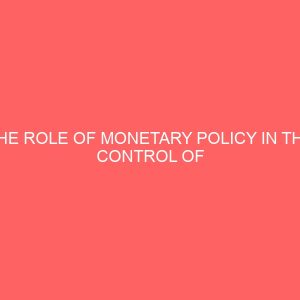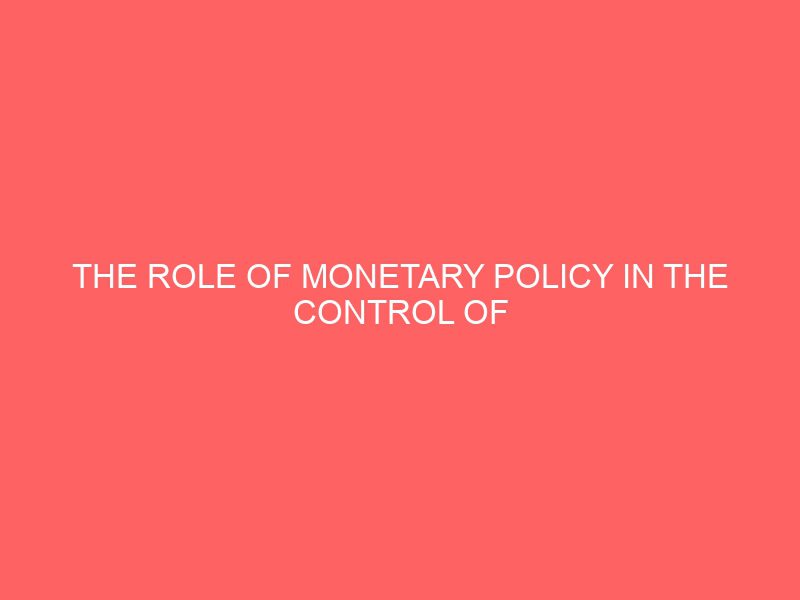Description
THIS RESEARCH WORK IS ON THE ROLE OF MONETARY POLICY IN THE CONTROL OF INFLATION IN NIGERIA.
CHAPTER ONE
1.1 BACKGROUND OF THE STUDY
One of the most important aspects of macro economics is monetary policy which is being used as a tool to determine aggregate and average figures in the economy.
This considers what determines total employment and production consumption total, investment in raising productive capacity, and how much a country imports and exports.
It also asks what causes boom and slumps in the short run, and determines the long term growth rate of the economy in the general level of prices and the rate of inflation (Nwachukwu 1998; 12) macro economy considers how these matters can and should be influenced by government through monetary and fiscal policies.
The entire behavior of the economy is studied. Beside, macro economies try to solve the problem of supply issues which result due to excess demand of product by consumers.
However, monetary policy deals directly with control of excess money supply in the economy.
Put differently, monetary policy refers to a combination of measures designed to regulate the value, supply, and cost of money in an economy, in consonance with the expected level of activity.
For most economics like Nigeria, the objectives of monetary policy include price stability, maintenance of balance of payment, equilibrium, promotion of employment and output growth and sustainable development.
These objectives are necessary for the attainment of internal and external balance and promotion of long run economic growth (Bright 2000:10).
Nnanna D.O 2001 rightly puts it that the success of monetary policy depends on the operating economic development.
The institution frame work adopted, and the choice of the instruments used” in Nigeria the design and implementation of monetary policy is the design and implementation of monetary policy is the responsibility of the Central Bank of Nigeria (CBN).
The mandates of the Central Bank are specified in the CBN Act of 1958 which includes;
Issuing of legal tender currency.v
Maintaining external reserves to safeguard the international of the currency.v
Promoting monetary stability and sound financial system.v
Acting as Bankers and financial adviser to the federal government.v
Regulating of interest rate requires.v
However, the current monetary policy frame work focuses on the maintenance of price stability, which the promotion of growth and employment are the secondary goals of monetary policy.
John Black 2003:235, inflation means a persistence tendency for prices and monetary way to increase, and is measured by the proportional changes over time in some appropriate price index, commonly a consumer price index or a G.D.P. deflator. In the words of Richard G. Lisped 1978:155, inflation, an increase in the level is called INFLATION.
This inflation can only occur if all price level has doubled. Generally, then CBN controls the economy in the term of inflation using the monetary policy tool. It is on the note the researcher has decided to carry out a study on the Role of monetary policy in the control of inflation in Nigeria with reference to Central Bank of Nigeria (CBN).








Reviews
There are no reviews yet.